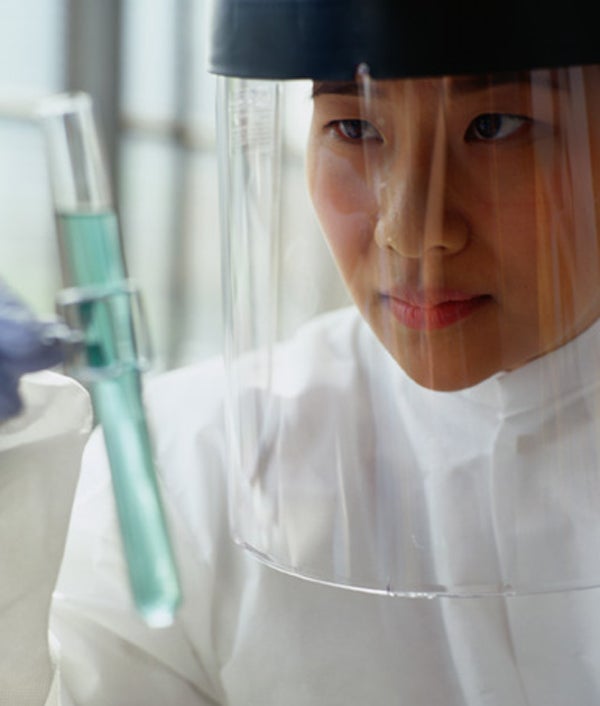Your support helps us to tell the story
From reproductive rights to climate change to Big Tech, The Independent is on the ground when the story is developing. Whether it's investigating the financials of Elon Musk's pro-Trump PAC or producing our latest documentary, 'The A Word', which shines a light on the American women fighting for reproductive rights, we know how important it is to parse out the facts from the messaging.
At such a critical moment in US history, we need reporters on the ground. Your donation allows us to keep sending journalists to speak to both sides of the story.
The Independent is trusted by Americans across the entire political spectrum. And unlike many other quality news outlets, we choose not to lock Americans out of our reporting and analysis with paywalls. We believe quality journalism should be available to everyone, paid for by those who can afford it.
Your support makes all the difference.Business leaders called today for science graduates to be given a bursary of £1,000 to help boost the number of specialist workers as the UK gears up for a new "industrial revolution".
The CBI urged the Government to do more to persuade youngsters to study science subjects, including tackling the "misconceptions" about careers in technology and engineering companies. More specialist science teachers were needed, school building and labs should be improved to make the subjects more attractive and careers advice must be upgraded with £120 million of new funding, urged the business group.
Director general Richard Lambert said youngsters were doing better than ever in science tests at the age of 14, but "hardly any" were going on to study Triple Science at GCSE level in England.
"We need to create an environment in schools that reflects the importance of science, and the value of studying it. We also need to send an unambiguous message to young people who are good at science that science as a career can be fascinating and worthwhile, and will reward you well."
Mr Lambert said the UK could be on the verge of a new industrial revolution because of huge new projects such as the £16 billion London Crossrail scheme and the prospect of new nuclear power stations.
"The question is whether our fellow citizens will do more than just pour concrete," said Mr Lambert, adding that the Crossrail project alone will create jobs for thousands of workers with engineering skills.
The CBI said bright children should automatically be entered for Triple Science at GCSE level, currently taken by just 7% of 16-year-olds. The policy would affect 250,000 14-year-olds ever year and would tackle the problem of so many young people "missing out" on a raft of potential careers, Mr Lambert argued.
The CBI said bursaries of £1,000 should be given to graduates taking science, technology, engineering and maths degrees to help them pay their tuition fees, at a total cost of around £200 million a year.
Science graduates earned at least £60,000 more over their lifetimes and were in demand, even before the new engineering projects planned in the UK, said the CBI. "If we don't act we will miss a terrific opportunity and will find ourselves with real problems recruiting skilled workers," said Mr Lambert.
An estimated two million extra skilled jobs will be created by the year 2014 in the UK, but firms were already being hit by a shortage of suitably qualified staff, said the CBI. Professor Alan Smithers of the Centre for Education and Employment Research at Buckingham University said: "The CBI is pushing at an open door. The Government has introduced an entitlement from this September. The problem it has is there are not enough physics teachers.
"The problem schools have is in fitting three subjects into a two-subject slot. The separate sciences have continued to thrive in independent schools because their pupils are able to choose any combination at GCSE and do not have to do all three. It could be that state school pupils should be allowed the same freedom as their independent counterparts."
Schools minister Jim Knight said that from September all pupils achieving at least level six at key stage three will be entitled to study triple science GCSE, for example, through collaborative arrangements with other schools. "We think this is the most practical way of building capacity in schools and developing our most promising scientists.
"Increasing the number of young people choosing to study science into higher education is a top priority and it is our goal that every student with the capability should have the option of studying triple science. "However, we don't agree that they should be automatically opted."

Join our commenting forum
Join thought-provoking conversations, follow other Independent readers and see their replies
Comments